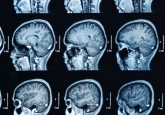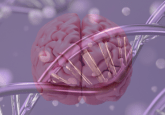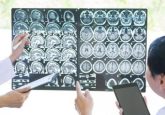An algorithm for recognizing neurological conditions

Researchers have developed a computer program that can detect patterns in functional magnetic resonance imaging (fMRI) scans characteristic of neurological conditions.
Georgia State University’s TReNDS Center (GA, USA) has built a dynamic computational diagnostic tool that can recognize signs of neurological conditions in fMRI scans. The group of seven researchers hope that the program will aid in the earlier diagnosis of conditions such as autism, schizophrenia and Alzheimer’s disease.
Measuring blood flow changes using fMRI is an expensive and time-consuming method for diagnosing these conditions. However, streamlining the analysis of these images by creating an algorithm could lead to earlier intervention and recognition of the condition. Lead author Sergey Plis recognized the problem with fMRI imaging currently, commenting that “the available data is so much larger, so much richer than a blood test or a regular MRI. But that’s the challenge – that huge amount of data is hard to interpret.”
 Computer model identifies cancerous driver mutations
Computer model identifies cancerous driver mutations
Researchers have developed a computer model to scan the entire genome of cancer cells to identify driver mutations, which could help researchers find novel drug targets.
The research team initially used 10,000 people’s fMRI scans to train their computational model to understand basic brain function, followed by a further 1200 people’s scans, including those with neurological conditions. The model is based on observed changes over time; therefore, in order for the model to be clinically helpful, it has to have a baseline brain image before condition onset.
“Even if we know from other testing or family history that someone is at risk of a disorder such as Alzheimer’s, we are still unable to predict when exactly it will occur,” author and Founding Director of the TReNDS Center Vince Calhoun reported. “Brain imaging could narrow down that time window, by catching the relevant patterns when they do show up before clinical disease is apparent.”
The team are hopeful that the dynamic deep learning model will be useful for the rapid and early diagnosis of conditions like Alzheimer’s disease and schizophrenia. The study has collated a large database of fMRI scans, which could be helpful for illuminating further biomarkers of neurological conditions. “The vision is that we collect a large imaging dataset, our AI models pore over it, and show us what they learned about certain disorders,” Plis concludes. “We are building systems to discover new knowledge we could not discover on our own.”





